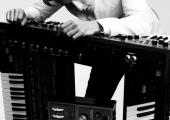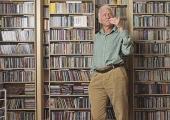theartsdesk Q&A: Musician Moby

New York electro star talks airport fiction, addiction, photography and Lady Gaga
Moby (b 1965) has been a presence on the dance scene and in global clubland for two decades. He is best known for the multimillion-selling 1999 album Play which, among other things, combined lush electronic orchestration with old field recordings of a cappella blues shouters. Moby's musical career, however, began at least a decade earlier.







